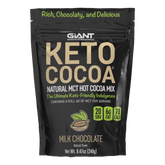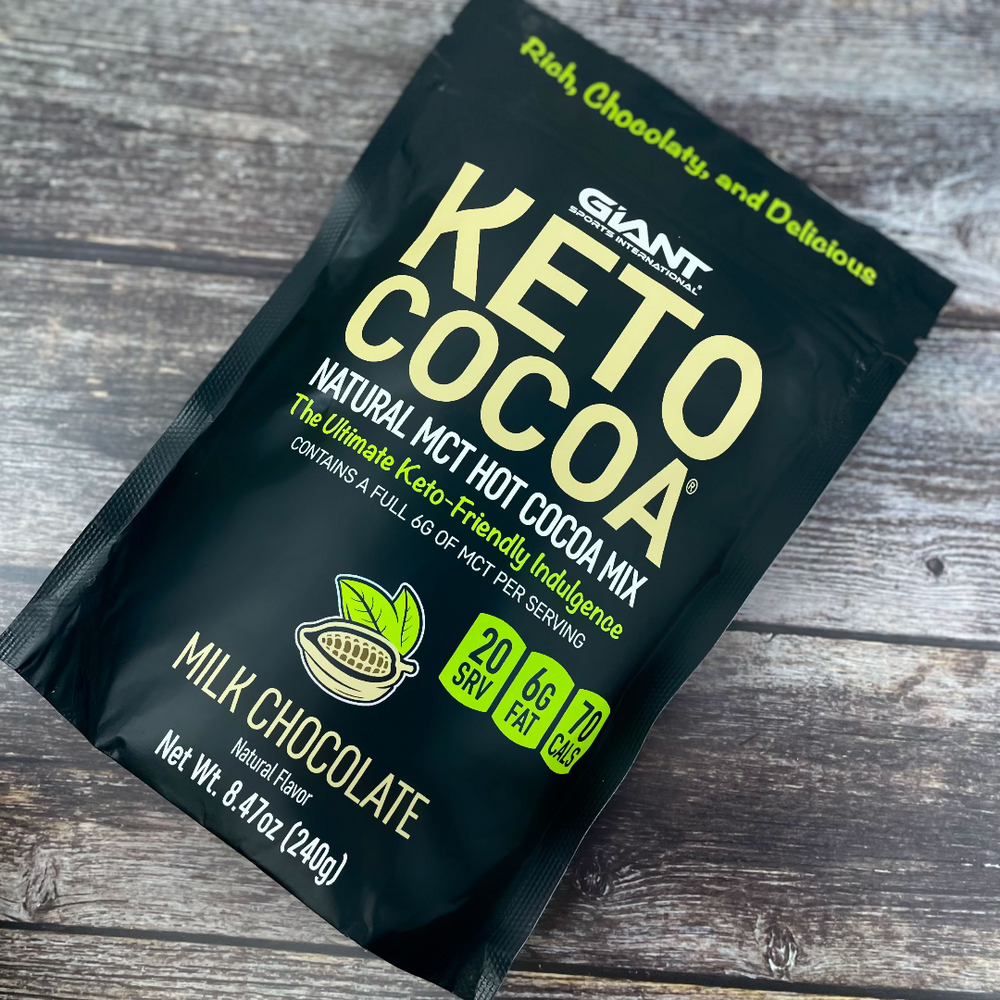 What You'll learn...
What You'll learn...
- What is the Ketogenic Diet?
- More Than One Type of Keto
- Which Conditions Are Helped By Following the Keto Diet?
- How the Keto Diet Works
- What to Eat on the Keto Diet
- Are There Side Effects with the Keto Diet?
- Do You Have to Take Supplements?
- Is the Keto Diet for Everyone
- Conclusion
It seems like everybody wants to lose weight these days, and there is little wonder why. With all of the food choices we now have available, it is more difficult than ever to keep the weight off, and there is certainly no shortage of diets to choose from. The lid has been blown off the sugar industry and now it is common knowledge about how bad sugar is bad for people. Not only is it addicting but it can commonly be referred to as poison. One of the most significant diets to come about in a very long time is the ketogenic diet, and it is producing some amazing results for tens of thousands of people.
What Is the Ketogenic Diet?
The ketogenic diet – keto for short – works fairly simple. It is a low-carb, high-fat diet that increases the amount of protein you get and can keep you full while you’re dieting. One of the biggest advantages of the keto diet is that it helps you diet without hunger pains, in part because of the extra protein that you get to eat.
Although low-fat diets were once the rage, people are now realizing that cutting back on fat doesn’t always produce the results they were hoping for, and low-fat diets tend to be more on the unhealthy side as well. Cutting back on carbs not only helps you lose weight quickly, but it is a healthier diet because it combines the right amount of fats, protein, and carbs so that the weight just slips off.
Just how good is the keto diet? For one thing, several studies have shown that people lose two to three times more weight with this diet than with any other type of diet plan, and they do so without feeling hungry all the time. Not only that, the keto diet is great for lowering blood sugar and cholesterol, and it has even been shown to improve diabetic and pre-diabetic conditions, so much so that many people have been able to get off of their diabetes medications.
Just how does this happen? The keto diet helps you lose weight, which is one of the main causes of Type 2 diabetes and even boosts sensitivity to insulin. When you consider the direct link between obesity and diabetes, it is easy to understand why taking off weight with the keto diet can be just what the diabetic and pre-diabetic patient needs.

More Than One Type of Keto
One of the keto diet basics is the various types of keto diets for you to follow, which include:
- The cyclical keto diet (CKD): This plan includes switching up between on-diet and off-diet days so that you don’t get too bored with it. An example would be five days of keto dieting followed by two days of high-carb dieting.
- High-protein keto diet: Similar to the standard keto diet except for the ratio of fat, protein, and carbs is 60%, 35%, and 5% respectively.
- The standard keto diet (SKD): The ratio of fat, protein, and carbs on this plan is 75%, 20%, and 5%, respectively. It is a basic low-carb, high-fat, and moderate-protein diet.
- The targeted keto diet (TKD): With this plan, you can actually add carbs to your diet when you are getting ready to exercise or work out.
The important thing to remember about these plans is that only the standard and high-protein keto diets have been studied well enough to produce reliable results, which is something to consider whenever you’re trying to choose the right plan for you. In addition, the cyclical and targeted keto diet plans are used mostly by professional bodybuilders and athletes.
You can measure your progress and what your diet should entail by checking out our own Keto Cycle Calculator.

Which Conditions Are Helped by Following the Keto Diet?
In addition to being good for diabetics and those who need to lose weight, the keto diet has been shown to improve neurological conditions such as epilepsy, reduce risk factors for heart disease such as blood pressure and cholesterol levels, improve acne problems since you’re eating a lot less sugar, and even slow tumor growth in people who have cancer.
In addition, keto diets have been shown to improve conditions such as Alzheimer’s, certain problems with the ovaries, concussions and certain brain injuries, and even conditions such as Parkinson’s disease. This doesn’t mean that following a ketogenic diet can actually reverse or eliminate these conditions; it just means that early studies have been very promising with regards to the relationship between the diet and these conditions.
How the Keto Diet Works
If you’re curious about how this diet works, it is really very simple. As compared to other types of diets, which can require counting calories, counting fat grams, or keeping track of points, all you have to do with the keto diet is learn which foods you can eat and which ones to avoid. As long as you are familiar with which foods you are allowed to eat and which ones you’re not allowed to eat, the rest of the process is very simple.
The foods you need to avoid on the keto diet include the following:
- All fruits, although you can have small amounts of berries.
- All low-fat and “diet” products, including diet sodas.
- Any sauce or condiment that contains sugar.
- Any type of alcohol.
- Anything that is sugar-free.
- Fats that aren’t good for you, such as mayo and processed vegetable oils.
- Legumes and beans, including lentils, peas, etc.
- Root vegetables or tubers, such as carrots, sweet potatoes, and potatoes.
- Starches and grains, which include cereal, pasta, and rice.
- Sugar, which includes sodas, fruit juices, most desserts, and even smoothies.
The reason that diet foods are to be avoided is that these tend to be highly processed foods that are also high in sugar alcohols, which can affect your ketone levels. When you follow a low-carb, high-fat diet, your body does a better job of burning fat and, in fact, turns fat into ketones inside your liver. It is these ketones that give your brain the energy it needs to make you healthy.

What to Eat on the Keto Diet
Okay, now comes the fun part – learning what you can eat while on the keto diet! The list is seemingly endless and includes most of the items that people love to eat, including the following:
- All meats, including beef, chicken, turkey, ham, sausage, etc.
- Avocados, either eaten whole or as guacamole.
- Condiments such as salt and pepper.
- Cream and butter, especially if it’s grass-fed.
- Eggs, especially those which are pasteurized or contain Omega-3 fatty acids.
- Fatty fish, such as tuna, salmon, and trout.
- Healthy oils, which should include extra-virgin olive oil, avocado oil, and coconut oil.
- Low-carb veggies, including peppers, tomatoes, onions, and most green vegetables.
- Seeds and nuts, such as pumpkin seeds, almonds, chia seeds, and flax seeds.
- Unprocessed cheese, including cheddar, goat cheese, cream cheese, etc.
Simply put, your allowable foods while you’re on the keto diet will include meats, cheeses, many vegetables, nuts, and healthy oils, and it is always recommended that you stick with whole, single-ingredient foods for the healthiest results. If you’re researching keto for dummies, these are the foods that you should stick with to get healthy and lose the weight you wish to lose.
When you think about it, the keto diet can actually be fun to follow, because the meat is something most people love but which many other diets restrict. It is always difficult to cut back on the foods you love, but the keto diet allows you to eat just about anything you like.
Furthermore, if you think you’re going to miss bread and pasta, think again. After only a short period of time, your body adjusts to your new diet plan, and you’ll be surprised by how little you’ll miss these things once you get started.

Are There Side Effects with the Keto Diet?
Just like many other diets, you can have side effects while following the keto diet. This happens because your body is adjusting to your new diet plan and, therefore, it can rebel against it occasionally. Some of the symptoms you may encounter include increased hunger, problems getting to sleep, lack of energy, tummy problems, and even nausea.
Fortunately, these symptoms don’t last long for most people, and you can decrease these side effects by utilizing another low-carb diet for the first few weeks before switching over to the keto plan. Another way to make the most out of this diet is to always eat until you’re full. Remember, you aren’t counting calories or points, so eating until your full means you won’t have to deal with hunger pains for very long.
In addition, since your body may be lacking certain minerals while on the keto diet – a direct result of your changing mineral and water balance while participating in keto – it is recommended that you take a mineral supplement that includes minerals such as potassium, magnesium, and sodium.
Do You Have to Take Supplements?
Supplements aren’t necessarily required while on the keto diet, but we recommend them. Almost every person on the planet is lacking in some type of vitamin or mineral, so a good basic multi-vitamin and mineral formula can provide you with the added nutrients you need while on the diet. This is especially true if you are exercising regularly because your body will need extra nutrition.
There are also specific supplements recommended for people on the keto diet, which include:
-
Caffeine, which can increase both fat loss and energy.
- Creatine, especially if your workouts are intense.
-
Exogenous ketones, a great supplement for increasing your ketone levels.
- MCT Oil, which can be added to yogurt and liquids and increases your ketone level.
- Whey, which you can add to nutritious shakes or smoothies.
Being on the keto diet is a comprehensive plan that should include regular exercise, increased water intake, the addition of vitamin supplements to your diet, and of course, eating the right foods. Only when all of these things work together will you be able to enjoy the results you were hoping for.
Is the Keto Diet for Everyone?
Naturally, there is no such thing as one diet that is good for everyone, and the keto diet is no different. Learning how the keto diet works and how to make it effective is important, but before you get started, there are some things you should know.
First of all, you should get a complete checkup from your doctor before starting any diet plan, including this one. This is especially true if you have any type of medical condition, including heart problems, diabetes, high blood pressure, cholesterol problems, etc., because these may require that you alter the diet somewhat. Your doctor also needs to know that you’re planning to follow the keto diet to lose some weight.
In addition, if you are taking any prescribed medications, it is important that you keep taking them as you’ve been doing because getting off of them can be dangerous. You should also check with your doctor if you’re planning to add any type of supplement to your diet because some supplements can actually interfere with your medicine.
In short, you need to make sure you’re healthy enough to start a new diet plan, and the only way to know this for sure is to get a complete checkup and talk to your doctor about your current medications and what you’re planning to add in the form of vitamins or other supplements.
One of the reasons it is so important to check with your doctor is in case you have any type of undiagnosed medical condition – such as diabetes – which might require that you either eat or avoid certain foods. People with high blood pressure, for instance, should not be taking sodium supplements while on the keto plan, but if you don’t already know you have this condition, you may take them anyway and harm yourself in the process.
Conclusion
The
keto diet is healthier than you think, not to mention a very easy diet plan to follow. There are no counting grams or points, and most of the foods that people tend to love are on the “allowable” list. Using common-sense while on the diet also helps, and of course, if you have any issues with tummy problems, fatigue, odd-smelling urine, or any questions about the diet itself, one quick phone call to your physician can help.
 What You'll learn...
What You'll learn...













